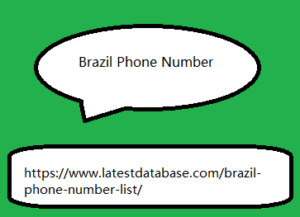Post by afifatabassum on Mar 11, 2024 3:06:38 GMT -5
For a few days , Facebook's APIs have been made accessible to developers, who have immediately started developing interesting services. There are those who have thought of creating pages capable of aggregating the contents most liked and shared by users of the social network, see " Like Button " and " It's trending ", and those, like Ka-Ping Yee, have created a tool useful for protecting your privacy. By accessing this page and entering your name or Facebook ID you will be able to see which information on your Facebook profile is publicly accessible and thus decide whether to change certain settings. It would have been better if Zuckerberg himself had thought of it.
The basic problem of mapping always remains Brazil Phone Number the same: when I describe, I limit, I close the horizon of the perception of reality (what is not in the map is not). It happens with searches done on Google and it will happen with those we do in the graph promoted by Facebook. The immediate thing to keep in mind is that Facebook no longer lives only on facebook.com . The “like button” is an outpost of FB on all the “open web” sites that implement it. But what are the consequences of liking? Here are some considerations: – The platform is evolving, trying to get out of the walled garden , which would have risked determining its end, and it does so by trying "to give its users valid reasons to leave FB" (as mafe says ), summarized in the promise of an experience of more personalized navigation, of sites "humanized" by the recommendations of our friends .

To push users towards this new experience (currently fully implemented only by Docs.com, Pandora and Yelp) Zuckerberg forced his hand and set the so-called “instant personalization” by default. To change it, just go here or follow Dario's instructions . – The promotion of Open Graph Protocol has the disruptive and positive effect of pushing other players towards the semantic web . The protocol in question is a set of metadata licensed under an open license agreement so that other platform creators can adopt and distribute it. But those who criticize its openness immediately began building an alternative model called “ Open Like “. In this regard Siegler and Obasanjo .
The basic problem of mapping always remains Brazil Phone Number the same: when I describe, I limit, I close the horizon of the perception of reality (what is not in the map is not). It happens with searches done on Google and it will happen with those we do in the graph promoted by Facebook. The immediate thing to keep in mind is that Facebook no longer lives only on facebook.com . The “like button” is an outpost of FB on all the “open web” sites that implement it. But what are the consequences of liking? Here are some considerations: – The platform is evolving, trying to get out of the walled garden , which would have risked determining its end, and it does so by trying "to give its users valid reasons to leave FB" (as mafe says ), summarized in the promise of an experience of more personalized navigation, of sites "humanized" by the recommendations of our friends .

To push users towards this new experience (currently fully implemented only by Docs.com, Pandora and Yelp) Zuckerberg forced his hand and set the so-called “instant personalization” by default. To change it, just go here or follow Dario's instructions . – The promotion of Open Graph Protocol has the disruptive and positive effect of pushing other players towards the semantic web . The protocol in question is a set of metadata licensed under an open license agreement so that other platform creators can adopt and distribute it. But those who criticize its openness immediately began building an alternative model called “ Open Like “. In this regard Siegler and Obasanjo .
